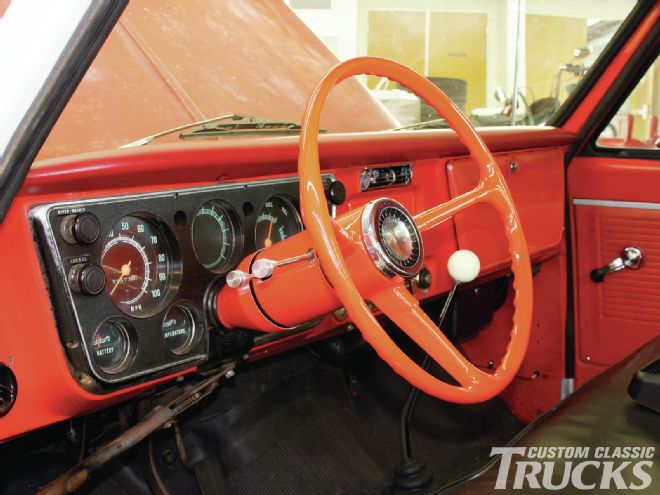
There are a number of things that most of us are willing to accept as par for the course when it comes to driving old trucks. Sure they might rattle a bit, the windlace might whistle, and the floor and firewall might get a little hotter than we’d like, but hey, that’s just part of the whole experience, right? But there are a number of other things that most of us are not willing to accept and are easily upgraded to make the driving experience much more enjoyable.
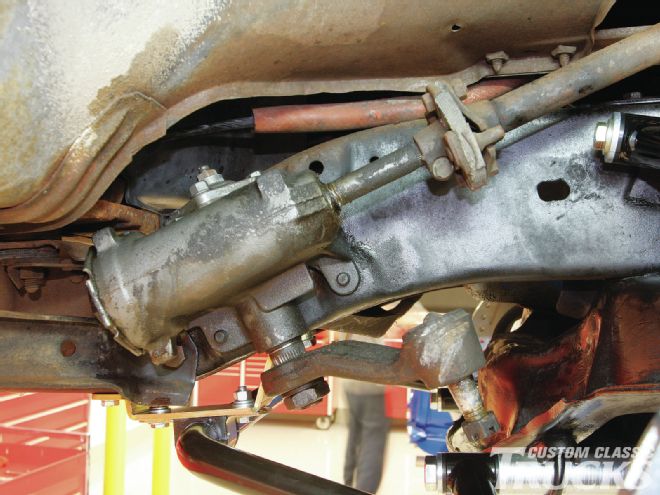 The first step in upgrading the steering is to remove the stock manual steering box.
The first step in upgrading the steering is to remove the stock manual steering box.
Things like disc brakes and updated suspension designs not only make the truck more comfortable, but also add a heavy dose of safety to a vehicle that’s design is not up to par with today’s demands. Other things, like power windows, air conditioning, power steering, and tilt steering columns are creature comforts that many of us have come to expect from our rides.
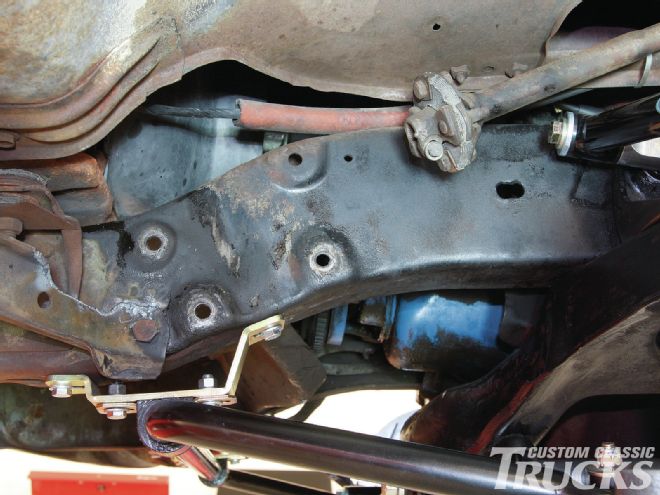 Three fasteners on the framerail and a rag joint are all that attach the stock box to the truck. Note the section that was trimmed from the bumper bracket to clear the new power box.
Three fasteners on the framerail and a rag joint are all that attach the stock box to the truck. Note the section that was trimmed from the bumper bracket to clear the new power box.
It was with this in mind that I decided to update the ’68’s steering from a manual box with a 17-inch wheel atop the stock column to power steering, a tilt column, and the reduced-diameter 15-inch wheel from last month’s restoration story. The goal was to get the steering duties for the ’68 more in line with what a contemporary truck would feel like. And with the long wheelbase, an easier time steering the beast was starting to sound really good!
So I made a few phone calls and with a little legwork I soon had all the components to match up the stock steering wheel to the power box. An eight-position tilt column from ididit would be coupled via a Borgeson vibration reducer U-joint to a Classic Performance Products (CPP) 700-Series Saginaw power steering box.
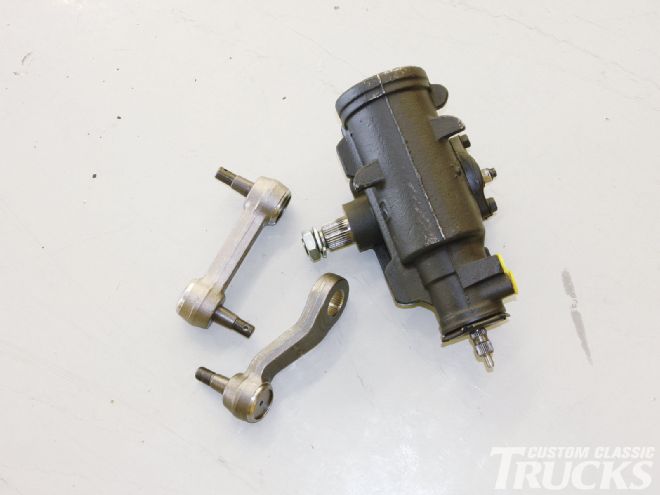 CPP’s power steering box for ’67-72 Chevy trucks is a 700 Series Saginaw unit rebuilt to exceed factory specs. A new pitman and idler arm round out the package.
CPP’s power steering box for ’67-72 Chevy trucks is a 700 Series Saginaw unit rebuilt to exceed factory specs. A new pitman and idler arm round out the package.
The really cool thing about the ’67-72 Chevy trucks (and most likely why there’s so many on the road still) is that many of these upgrades are simple bolt-ons. Later model disc brake components will bolt right up. Power steering components from later trucks will bolt right up, as well. The CPP box used the same holes as the manual box did and ididit’s column slipped right in place under the dash using the same mounts as the stock column. Using an adapter provided by ididit, the wiring harness plugged right into the factory harness as well. The only thing that needed to be fabricated was a short DD shaft to mate the column to the box, which took about five minutes to measure, cut, and install.
In a day’s time, we went from forearm-busting manual steering to pinky-spinning power with the added luxury of adjusting the angle of the steering wheel to suit one’s preferred driving style or comfort zone. I have to admit that I’ve never actually had a vintage truck with a tilt column in it, though I’ve driven my share of rental cars that had, and it’s surprising the level of comfort that it adds. Though I have yet to actually log some serious miles on the truck, I know that it’ll pay dividends when it comes to driving long distances, being able to adjust the position and all. And anything that adds to the level of enjoyment I get from driving my old truck is worth it to me! CCT
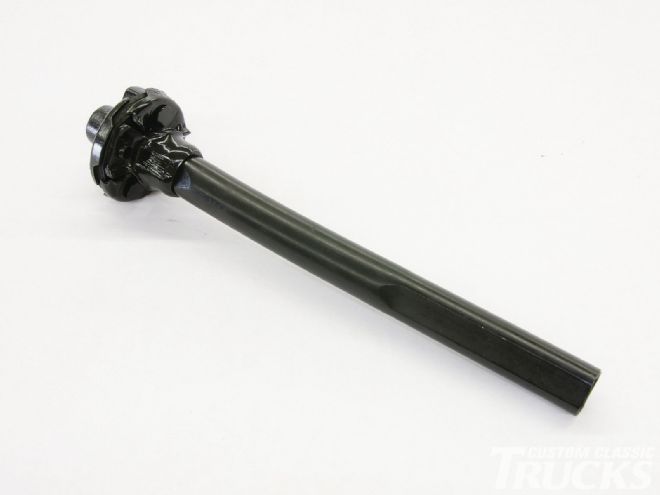 A new rag joint and sleeve allow the box to be mated to the column via a 3/4-inch DD shaft.
A new rag joint and sleeve allow the box to be mated to the column via a 3/4-inch DD shaft.
Stock Options